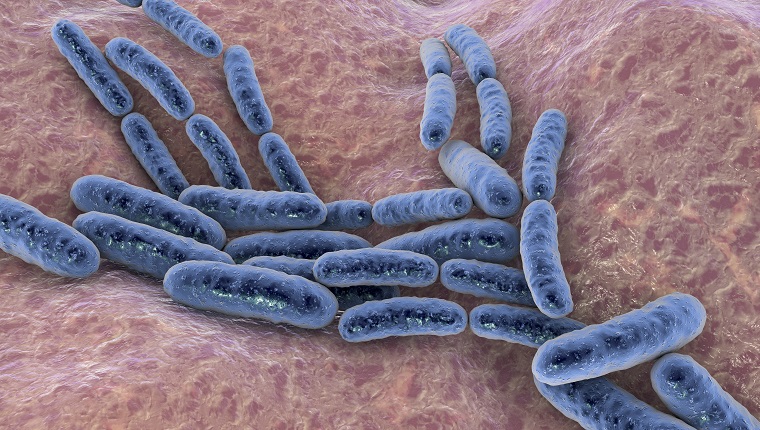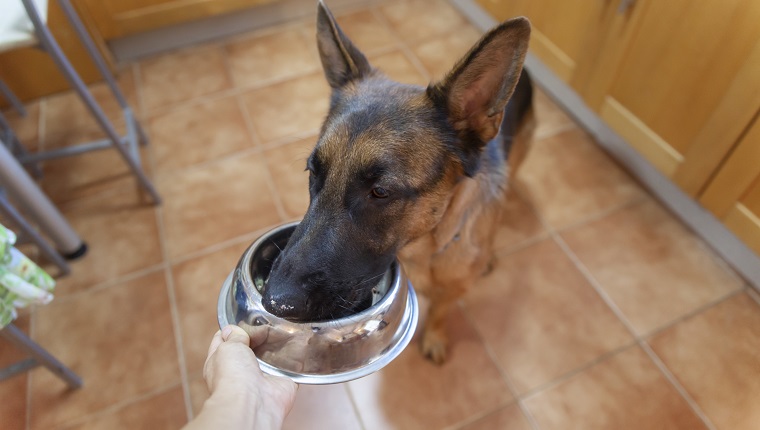You probably already know that probiotics are beneficial for humans. But did you know your dog also needs these tiny organisms to live a happy and healthy life?
Probiotics are healthy bacteria that live in your dog’s digestive tract and help it digest food, extract nutrients and vitamins, produce enzymes, and keep harmful bacteria in check.
You could ask your vet about the main differences between probiotic strains. However, chances are they won’t have the time to explain everything in much detail.
With that in mind, here’s a guide to briefly go through the most common probiotics for dogs and their benefits for health and long life.
Why Are Probiotics So Important?
While scientists still have a lot to learn about gut bacteria or the microbiome, we already know that a change in this area of the digestive system can affect the immune response and the overall quality of life.
Every dog’s microbiome is unique since it reflects that dog’s way of living. This is why it can be difficult to identify what it’s missing when your pooch is sick. Yet, even small changes to the species of bacteria living in your dog’s gut can have a negative impact.
Diseases like leaky gut, yeast overgrowth, pancreatitis, colitis, and others can be linked to a microbiome imbalance. Even obesity and allergy symptoms have a start in the gut. That’s why it’s important to pay attention to your dog’s food and overall environment.
Probiotics feed and live on what the dog eats — after all, they’re situated in the gut — and they love fibers. Yet, it’s not a good idea to overdo it with foods that have a high fiber content.
Instead, specialists recommend probiotic supplements that the dog can ingest with food. But if you check this well-detailed guide to probiotics for dogs, you’ll notice things can get confusing if you don’t know a thing or two about specific strains and their benefits.
1. Lactic Acid Bacteria

Lactic acid bacteria usually come from fermented milk and appear in the vast majority of probiotic supplements.
This probiotic has two main species: Bifidobacterium — marked with B. on ingredients’ list — and Lactobacillus — marked with L. Each species has several different strains, providing your dog with various benefits.
In general, Bifidobacterium species live in the colon and interact with immune cells, helping them get stronger. On the other hand, Lactobacillus helps inhibit the growth of harmful bacteria in the intestine by converting milk sugar into lactic acid.
Both these species help keep the immune system up and running. If their number is low, your dog may suffer from anxiety (some connections were found).
2. Probiotic Yeast
We often associate yeast with an infection or a problem in the system. However, some yeasts can help strengthen the immune system and even protect the gut during antibiotic treatment.
One such yeast is S. boulardii, an antibiotic-resistant yeast that can prevent antibiotic-related diarrhea, treat Candida and yeast, and alleviate chronic inflammation.
S. boulardii is mostly used in humans to treat acute and chronic diarrhea, but recent studies showed it is equally efficient in dogs.
3. Bacilli Strains

These strains of probiotics are spore-forming. This means they have a hard coating that protects them against the main threats that exist in the gut — heat, stomach acid, antibiotics, and so on.
It also allows them to have a longer life than Lactobacillus or Bifidobacterium, which only last about 24 hours in the gut.
Bacilli strains are beneficial in the treatment of inflammatory digestive diseases, rheumatoid arthritis, and urinary tract infections. Some strains even help with the production of B vitamins, vitamin K2, and quinols.
4. Probiotics From Fermented Foods
Some fermented foods, like kefir or kimchi, are naturally rich in probiotics and can be included in your dog’s diet without any risks for their health. However, you should not feed your dog fermented foods before talking about it with your vet.
That’s because some fermented foods can have the opposite effect if your pooch suffers from an undiagnosed disease or disorder. Also, these foods are rich in prebiotics — what probiotics eat — which could encourage the growth of any harmful bacteria and yeast as well.
However, it does help to make sure your dog’s diet has enough natural fibers from foods such as mushrooms, bananas, asparagus, or chicory root.
What To Avoid

You already know human foods are not always good for dogs, but you may be tempted to believe that fermented foods, such as yogurt, can be helpful.
This is not true because yogurt, in its natural form, doesn’t have that many probiotics, unless it’s enriched in some way. Plus, many yogurts contain high amounts of sugar, which can cause an imbalance of the gut microbiome.
Lastly, keep in mind that dairy products can be troublesome for dogs as they are known to cause immune problems and inflammation. So if your vet didn’t clear your dog for yogurt consumption, it’s best to avoid feeding it to them.
Supplement For A Long & Healthy Life!
Probiotic supplements designed for dogs bring a series of benefits that will help your pooch live a long and healthy life. However, it won’t happen overnight, and it doesn’t replace the benefits of a healthy diet.
Supplements of any kind go hand-in-hand with a healthy diet and help your dog stay happy and active, even in their senior years. Of course, as your dog gets more experienced in life, their needs will change, which is why it’s also important to learn how to care for a senior dog.
Overall, your dog deserves the same care and attention you would give a human being. After all, they will stay by your side in sickness and in health, for as long as possible.
Do you give your dog any probiotics? Which supplements have given your dog noticeable health benefits? Let us know in the comments below!
Nadine is a health coach and writer who helps her clients achieve phenomenal and sustainable results by combining nutrition, fitness, and fun! She believes primarily in living a happy life, and that the backbone of any lifestyle is that it must be sustainable and enjoyable.





